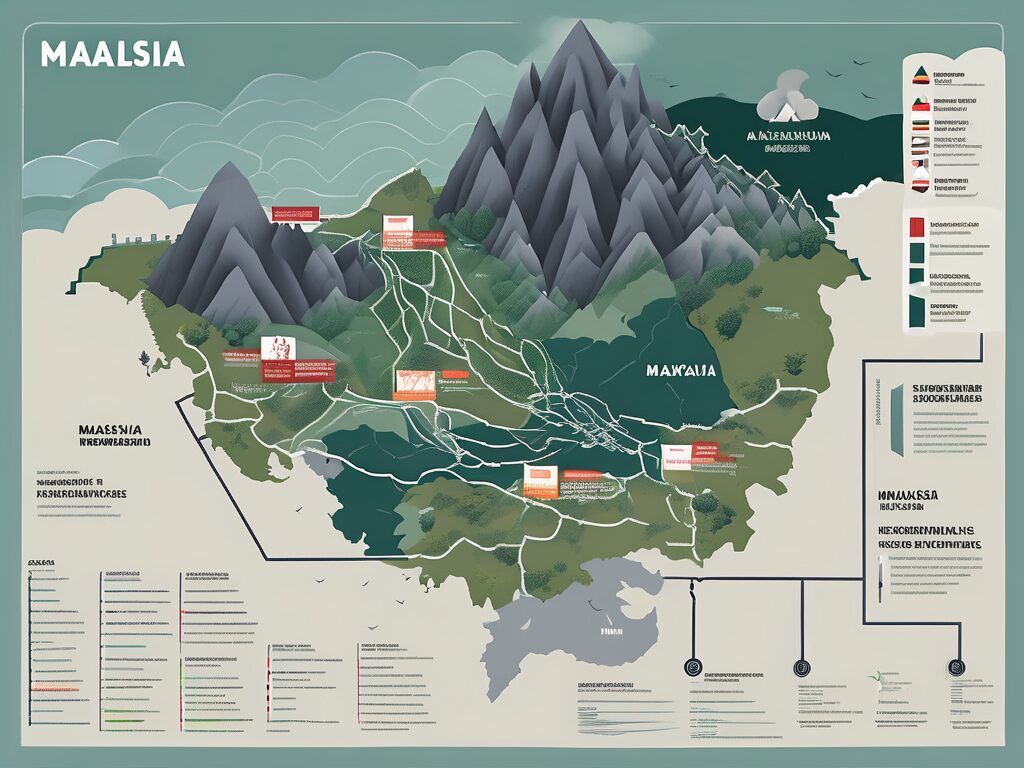Education is a fundamental human right, and it plays a crucial role in the economic, social, and cultural development of a country. However, in Malaysia, there remain significant barriers that prevent many individuals from accessing quality education. This article aims to shed light on six key factors that contribute to these education barriers.
1. Socioeconomic Status
The socioeconomic status of a family can significantly impact a child’s access to education. Children from low-income families often face financial constraints that limit their access to quality education. This is comparable to a race where some participants start further back due to no fault of their own, making it harder for them to catch up.
Furthermore, these children may need to work to supplement their family’s income, leaving them with less time for school and homework. In essence, their economic circumstances create a barrier to their educational progress.
2. Geographical Location
Geographical location is another significant barrier to education in Malaysia. Children living in rural or remote areas may not have easy access to schools. Imagine living in the heart of London and having to travel to the outskirts of the city every day for school; it’s a similar situation for these children.
Moreover, the schools in these areas may lack the necessary resources and facilities to provide a quality education. This geographical divide creates an uneven playing field in terms of educational opportunities.
3. Language Barriers
Language barriers can also hinder a child’s educational progress. In Malaysia, the medium of instruction in schools is Bahasa Malaysia, but there are also schools that use English, Mandarin, or Tamil. This is akin to being in a room where everyone speaks a different language; it can be quite challenging to follow along.
Children who do not speak the medium of instruction at home may struggle to keep up with their peers, creating a language barrier in their education.
4. Lack of Quality Teachers
The quality of teachers is a critical factor in the quality of education. However, Malaysia faces a shortage of qualified and experienced teachers, particularly in rural and remote areas. This is like having a football team without a good coach; the players may have potential, but they need guidance to reach their full potential.
Moreover, teachers may not be adequately trained to handle diverse classrooms with students of different abilities and needs. This lack of quality teachers can create a barrier to quality education.
5. Cultural and Gender Bias
Cultural and gender bias can also create barriers to education. In some communities, there may be a preference for boys’ education over girls’. This is akin to a game of chess where the queen is undervalued; it’s not a fair game, and it’s not a winning strategy in the long run.
Furthermore, children from certain ethnic or cultural groups may face discrimination or bias in schools, which can hinder their educational progress.
6. Lack of Special Needs Education
Lastly, the lack of special needs education is a significant barrier. Children with disabilities or special needs may not have access to the necessary resources and support in schools. It’s like being left-handed in a world designed for right-handed people; it’s not impossible to navigate, but it’s certainly more challenging.
Moreover, there may be a lack of awareness and understanding about special needs education among teachers and parents, which can further hinder these children’s educational progress.
In conclusion, while Malaysia has made significant strides in improving access to education, these six key factors continue to pose significant barriers. Addressing these barriers is crucial for ensuring that all children in Malaysia have equal access to quality education. It’s a complex issue, but with concerted efforts from the government, educators, and society at large, it’s a hurdle that can be overcome.
Empower Your Teaching Career with IPGCE
As we recognize the challenges outlined in the barriers to education in Malaysia, it’s clear that empowering educators is a key step towards overcoming these hurdles. IPGCE is committed to enhancing the qualifications of teachers, thereby increasing their prospects in the international education landscape. By joining the UK’s #1 Teacher Training Course, you can be part of the solution, fostering inclusivity and quality education for all. With IPGCE, you’ll not only improve your credentials but also gain access to a global network of professionals, understand diverse education systems, and enjoy flexible study options that fit your schedule. Don’t let inadequate qualifications hold you back. Join the IPGCE program today and take a significant step towards a more inclusive and effective educational environment in Malaysia and beyond.

